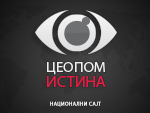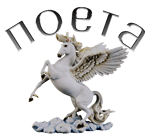Humanitarian Intervention – Again?
Written by James Bissett
Wednesday, 30 March 2011
As in the case of Serbia twelve years ago, Canada’s air force is once again
bombing a country presenting no threat to the safety or security of our country.
In fact, we are at war. There has been no declaration of war. There has been no
serious attempt to intervene peacefully to help resolve the conflict. There has
been no debate in our Parliament. There was no suggestion of sending a mission
to Libya to assess the situation on the ground.
More seriously, there has been no satisfactory explanation of what the bombing
is designed to do and little idea of who it is we are fighting for.
The United Nations Security Council has authorized a no-fly zone to be enforced
over Libyan skies but it is not clear what exactly this means. In the meantime
some Western nations – including Canada – have interpreted it to mean they are
authorized to attack and destroy Qaddafi’s forces fighting against an armed
rebellion to overthrow the dictator. Other countries do not agree. Among them
are: Germany, Russia, China, India, Brazil and, more importantly, the Arab
League.
Some have argued the aim is to prevent the Libyan despot, Muammar Qaddafi, from
slaughtering thousands of his people, but there has been no evidence that this
was his intention before the bombing took place.
President Sarkozy of France has made it clear that, as far as the French are
concerned, the intervention is to change the regime and replace Qaddafi. France
has already recognized the rebels in Benghazi as the legitimate representatives
of the Libyan people. This extraordinary step seems to rule out any possibility
of negotiating with Qaddafi for a peaceful solution to the armed struggle. It
also implies what amounts to a demand for his unconditional surrender – a demand
that almost always leaves your opponent no choice but to fight to the bitter
end.
As for the United States we are not sure what President Obama has in mind.
Initially, he was hesitant to lead his country into yet another war against a
Muslim nation. However, a hyped-up media and a number of his close advisors
urged him to intervene militarily. Having done so, he was anxious to at least
pretend that the lead in the continuing conflict would be taken by others, and
the “others” now seem to have been designated as some of the NATIO countries –
minus Germany and Turkey.
The waves of unrest and upheavals in the Arab world have created great hope but
at the same time potential danger. Who or what might replace the deposed despots
is not known, One thing seems clear, none of the Muslim countries involved is
ready for, or even desires to have, western style democracy.
For the most part the values of these Muslim countries are not western values,
and lurking in the background is the menacing threat of religious extremism.
This may be especially true in Libya, which has produced a high proportion of
suicide bombers and mujahedeen fighters in Afghanistan and Iraq.
As a general rule it is unwise to take sides in a civil war unless our own vital
interests are at stake. What is taking place in Libya today is a civil war and
we find ourselves playing the role of air force for the rebels. Unfortunately,
we really have no idea of who they are or what they represent. Moreover, we do
not know where the conflict will lead, how long it might last or the broader
implications for the region after the fighting ends.
All of this fiasco has turned out to be a colossal mess and is unlikely to end
well. This is not unusual when the excuse for intervention is based primarily on
so-called humanitarian reasons.
Military intervention for humanitarian reasons is not a new phenomenon. Even
Hitler justified his invasion of Czechoslovakia on the grounds that the ethnic
Germans in the Sudetenland were being mistreated and abused by their fellow
Czechoslovaks.
The concept has, however, found renewed popularity following the failure to
prevent the Rwanda genocide. It gained momentum during the civil war in Bosnia
and later in Kosovo, when charges of ethnic cleansing and crimes against
humanity were levelled against the Serbs. The NATO intervention in Bosnia and
Kosovo – despite strong evidence to the contrary – continues to be hailed as
highly successful operations.
The Balkan experience led directly to the new doctrine of the “responsibility to
protect” or R2P – the right to intervene in a sovereign state to protect
populations there who are at risk. R2P has become the new term for humanitarian
intervention and has laid out the conditions to be met for such intervention.
The key provision of this doctrine is that if a state is failing to protect its
citizens from mass atrocities, and peaceful measures to do so are not working,
the international community has the responsibility to intervene at first
diplomatically, and then more coercively, and at last resort, with military
force.
It is worth noting that the United Nations Charter does not permit the use of
military force for humanitarian intervention. However, in 2005 the General
Assembly did adopt the principle of R2P, provided that the parties to the
dispute “first of all seek a solution through negotiation, enquiry, mediation,
conciliation, arbitration, judicial settlement, resort to regional agencies or
arrangements, or other peaceful means of their own choice.”
If such peaceful means have been tried but have failed then and only then can
the United Nations Security Council authorize the use of force. Clearly none of
these peaceful methods were tried before the decision was taken to bomb
Qaddafi’s forces.
R2P has many loyal advocates both in Canada and the United States. In Canada,
our former foreign minister, Lloyd Axworthy, and retired General Romeo Dallaire
are leading proponents of the doctrine. In the United States, one of its
foremost advocates is Samantha Powers, author, foreign policy analyst, and now
member of the US National Security Council. Powers was appointed to the NSC by
President Obama and is said to have strongly influenced the President to
intervene in Libya.
Powers exemplifies the potential dangers of having a doctrine that invites the
violation of national sovereignty on the basis of alleged human rights abuse.
For human rights proponents like her there are few conflict situations that do
not deserve military intervention. In 2002, during the second
Palestinian Intifada, she pushed hard for US military intervention against
Israel with the aim of establishing and protecting a Palestinian state.
It is fortunate that R2P is not a mandatory obligation for the international
community. It provides a framework for intervention and guidelines to be
followed but it remains the responsibility of the United Nations Security
Council to authorize military intervention in a sovereign state. The veto power
remains a last resort to prevent the violation of sovereignty for whatever
reason.
There is great danger in assuming that the western democratic nations can
exercise wise judgment about when they should intervene in a conflict taking
place in developing countries. There is even more danger in assuming that the
intervention is motivated by real humanitarian concerns and not for selfish
political or foreign policy objectives as was clearly the case in Bosnia and
Kosovo.
The R2P concept is too easily high-jacked by leaders who see an opportunity to
gain political mileage at home by playing the role of protecting the rights of
suffering victims in far away places. If the country to be punished is headed by
a dictator and is not too powerful to take on, then the risk is worth taking.
If the intervention can be in concert with other allied nations so much the
better. For Canada, acting as part of NATO becomes particularly important as it
was in the bombing of Serbia, and is now in the case of Libya. Quite apart from
the substance of the issues involved Canada feels it must go along with our NATO
partners whether the military action is justified or not. Our political leaders
do not need to consult Parliament because NATO has decided the matter for us.
This is not a satisfactory situation for a democratic country. Other NATO member
countries do not always feel obliged to follow the NATO lead if they do not
agree with a military solution to the problem. Greece refused to take part in
the bombing of Serbia in 1999 and Germany has refused to join its NATO partners
in the Libya intervention.
Going to war is a serious business and it should be only done with the full
agreement of the Parliament of Canada after a vote in the House of Commons. It
is well to remember that at the outbreak of the Second World War it was only
after debate in the House of Commons and a vote that Canada declared war on
Germany.
Decisions about war and peace that affect the safety and security of our armed
services and citizenry are the paramount expression of a nation’s sovereignty.
Canada should not abdicate that responsibility in any circumstances.
Filed under: AKTUELNO, English | Leave a comment »










































